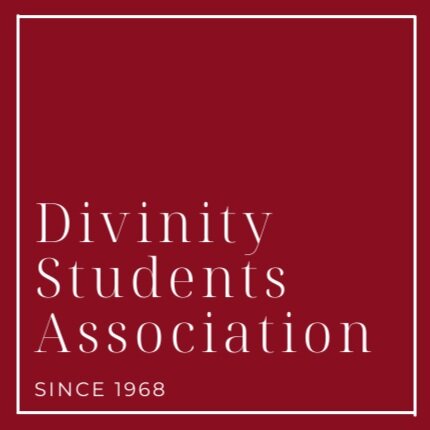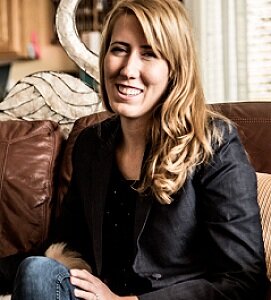September 2020 Faculty Letter
by Professor Sarah Pierce Taylor
Dear Divinity School Students,
I am honored to write the first in a series of faculty letters about persisting during the Covid-19 pandemic. What follows is a somewhat meandering set of reflections about my life during the pandemic. You’ll notice that I don’t write about my academic work or job and, instead, write about my life and my family in the everyday. That’s intentional. After trying out several different versions of being an academic, I know that, for myself, I must maintain investments beyond my research, my books, my computer, my classes, and my students. These political and personal investments are what make my academic life possible—doubly so now as a buttress against the pressure of hyper-productivity during the pandemic.
On July 9th, I poured myself a cup of coffee, sat down at my computer, opened the New York Times, and promptly screamed and began crying. On the front page was the news that the Supreme Court in a five to four ruling had ruled in favor of McGirt in McGirt v. Oklahoma. If you haven’t or hadn’t heard of this case, that’s fair. When the question of whether or not queer and trans people are covered by the 1964 Civil Rights Act is also on the court’s docket, I can understand how an obscure case dealing with Oklahoma crime jurisdiction can seem less significant. For Indigenous people like myself, this was a test case for future sovereignty. In a surprise outcome, the court ruled that the Oklahoma lands belonging to the Five Tribes had never been disestablished by Congress and were still “Indian country.” My family is from Nowata, Oklahoma of Cherokee and Shawnee descent. My great-grandmother, my grandmother, my father, and I have all gone through the process of becoming Cherokee citizens to honor my great-great-grandmother who appeared on the Dawes Final Rolls when she was 15. In recognizing that unbroken family line we also recognize the sovereignty of the Cherokee Nation. Even when my family moved away from Oklahoma during the Dust Bowl, they continued to write back to the Nation, requesting ID cards, name corrections on official documents, and subscriptions to the Cherokee newspaper. The Cherokee Nation always existed for them and, by extension, for me. That fortuitous Supreme Court ruling on July 9th proved what we already knew to be true.
My mother’s family were early white pioneer settlers to California who went on to run a prosperous almond orchard in the Central Valley and my dad’s family were indigenous poor who ended up as migrant laborers picking lettuce on the California coast. The irony, of course, is that early-twentieth-century California agriculture was run on Indigenous, Mexican, and South Asian labor. The settler structure that enriched my mother’s family was predicated on the precarity and vulnerability of my father’s. I am forever tied to the land of California in complex and enduring ways. When I was little, my mother used to make me garden in our backyard in the Sierra foothills. I hated it. It felt like child labor. Now when I go back to California, I drink in those rolling golden hills of my childhood. Being away, I feel alienated. I would give anything for my mother to demand that I get outside and pick weeds. I want to stick my hands in that soil and tend to it, my misbegotten inheritance.
The pandemic has made it impossible for me to visit California. The land itself faces existential threats: the loss of life due to the pandemic, fires, and never before seen heatwaves. I watch video clips of its fiery destruction and worriedly check in on my parents’ health and safety. This is one of the longest periods I have gone without going home in my adult life. As a consequence, I dream about it. I seek out any opportunity to talk to people from California. I get inordinately excited when anyone mentions the movie Ladybird. I read my small conservative hometown newspaper daily.
Yet, here I am in Chicago, in the middle of the continent at an undrivable distance from home, from my relations, and from that indescribable California landscape. During the winter, the pandemic and the resulting quarantine felt terrifying and then suffocating. All of a sudden, our condo that seemed palatial in December was like a prison by March. As the snow began to recede, I realized that we had unused space in our backyard. That pile of beer bottles, old cassette tapes, and thorns could be a garden. In anticipation, I planted seeds in little homemade paper sheaths nestled on radiators and under artificial lights. I watched them grow from a speck in my hand to food giving plants. Without any hyperbole, it was like watching a miracle.
The sun began to shine, it got warmer, and my partner and I started our garden. Every available piece of soil in our backyard was lovingly turned, planted, and tended. This garden continues to give me life during the pandemic, a place to safely go as an immune comprised person when the outside doesn’t feel safe. I stick my hands in that sandy Hyde Park soil, and it is a welcome respite from my keyboard and computer screen. I inhale the intoxicating scent of tomato and pepper plants. I hunt slugs. I weed and weed until the weeds stop showing up. It doesn’t feel like labor—it feels like happiness. Our tomato plants yield so much that I deliver them to elderly neighbors and hand them out to dear friends. Neighbors who I didn’t know previously stop by to chat, give me extra pots and plants, and thank me for the tomatoes. Our little six-flat feels closer, kinder, and more like a community. I feel more at home in Chicago than I ever have before. I marvel at what seeds and soil can do.
It’s now September. The pandemic is still here, summer is over, and we all know that fall in Chicago is only a brief prelude to winter. I am steeling myself for the snap of freezing weather that will be the sign to prepare my garden for winter. I’ll pull out my tomato plants, put away the planters, dig out my bulbs. I tense at the thought of it—the loss of sun, the loss of safe space, the loss of connection that it enabled during the pandemic. I try to remind myself that my indoor houseplants have long been neglected, and, before too long, it will be time to plant seeds again.
Rather than end with a trite note of spring will come again, I want to acknowledge that the loss is real. We are all losing things during this pandemic, but in losing we also find new ways to persist. I think this is what Audre Lorde meant by “self-care” as naming a form of political self-preservation in the horizon of a world that is inhospitable. In a world so inhospitable as ours—riven by a pandemic, the ongoing systemic injustices perpetrated by the state against people of color, and the day-to-day experience of environmental catastrophe—merely getting out of bed can be an achievement. I have days like that. Some days a face-mask and cuddling with my cats is all the deracinated politics of self-care that I can muster and that’s okay too. Then other days I connect with my garden and through it to other people. Most days, I am desperately trying to write a book or, at least, figure out how. And on still other days or really on singular special days, I celebrate and rejoice at the persistence of indigenous people against a genocidal state. All of those days are valid, and all are part of self-preservation during a pandemic.
All the best and stay safe,
Spt
P.S. I didn’t grow lettuce in my garden to pick and eat. Not that I have anything against lettuce, picking lettuce supported my family after all. No, I planted lettuce in the decorative planters on my balcony railings. It looks beautiful and makes me think of my family in California every day.
P.S.S., As we begin this new year at the Divinity School, please remember that we inhabit unceded Odawa, Ojibwe, and Potawatomi land.

